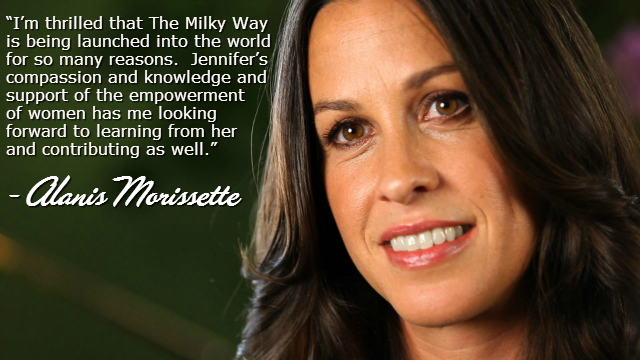I was at a 3 year old birthday party a few weeks ago nursing my 8 month old when a fellow Mom shielded her 5 year old daughter’s eyes (with two hands) to cover her face from the shocking site of a wee bit of the top of my breast (nipple covered by baby, bottom covered by dress.) As I walked out, I saw her feeding her own young infant a bottle of powdered formula. How did we fall so off course? Facebook comments ranged from “Does she do that when they walk by Victoria’s Secret?” to compassion for her since she clearly has issues. But does she have issues, or does society have issues? We’ve been so busy sexualizing big fake tatas then when a natural pair is used to do what they are actually meant for, it seems odd/ disconnected/ unusual. Time to change this tune. The shock most women have when I walk down the street nursing in my carrier is scary, why is it so shocking? It’s shocking because it’s not something they see enough. And thereby lies the problem. This a serious problem, way more serious than we may think. This is a society of women afraid to be too close to their children who then become depressed anxious adults desperate for physical human connection. A society of prozacians may just mean we are doing something wrong and perhaps, just maybe we need to get back to the garden. The stone age Mamas slept with their babies, fed them right from their own bodies, and never put them down until they could walk. Could we learn something from our ancestors? Or maybe 90 percent of the world who still parent this way.
The brilliant women behind “The Milky Way Movie” – an upcoming documentary on breastfeeding shared this bit of genius;
Social Influences and Nursing: Breasts have become “For adults only.” NOT for babies.

Women with big breast implants are allowed to show them in public. But when a mother nurses in public she may very well hear from a manager or employee:
“A customer just complained, so I need to ask you to leave.” or “Can you please do that in the bathroom?”
Mothers often receive mixed messages from loved ones: Well-meaning friends and family, who say they support breastfeeding, may say things that reflect the greater cultural beliefs about feeding babies.
When someone says:
- “You’re going to breastfeed? Won’t that hurt?”
- “Why don’t you give him some formula so you can sleep at night?
- “Don’t be selfish. Let me give a bottle sometimes, so I can bond too!”
- “Wow! Your baby eats all the time! Are you sure she’s getting enough?”
- “Just one bottle of formula won’t hurt.”
Moms may hear:
- “You’re not good enough!”
Marketing Influences and Nursing
The infant formula industry is an $8 BILLION per year business.
Across the globe, huge advertising budgets are spent to convince women that their breasts are not good enough, that nursing is hard, and that it is better and more convenient to bottle-feed their babies.

According to surveys, over 70% of large U.S. hospitals still hand out infant formula to all infants, a practice opposed by the American Academy of Pediatrics and in violation of the WHO Code.
When hospitals give a formula goodie bag to a new nursing mama it is like giving divorce papers to a bride on her wedding day! On the surface it looks like support, but the intention is to sell formula, not to ensure breastfeeding success.

In a genius ad campaign that spanned the last century, formula companies convinced mothers to trade in their breasts for bottles, and the baby bottle swiftly became the most recognizable symbol of infancy. The phenomenon of the nursing mother has all but disappeared from our culture and the sexual breast has replaced the mothering breast.


About The Milky Way
In defiance of nearly a hundred years of medical procedures that routinely separated babies from their mothers, and medical advice that informed women that their milk was not good enough, The Milky Way captures how mothers can access their inner knowledge and trust their own body’s wisdom. Women’s stories, leading lactation professionals, archival footage, religious iconography, and formula advertisements, show how mothers’ authority was co-opted by medical professionals, and how they have been pressured to forfeit their nourishing breasts in favor of highly sexualized breasts.
This film shows how women can reclaim their birthright and restore the nursing mother archetype. The Milky Way is about the knowledge that inherently resides in every woman, how to access that knowledge and how to trust what we already know. It is a film that will inspire women to say, “I can do that!” “I want to do that!
The Milky Way is about the knowledge that inherently resides in every woman, how to access that knowledge and how to trust what we already know. It is a film that will inspire women to say, “I can do that!” “I want to do that!


The Mythic Origins Of The Milky Way

Our own Milky Way Galaxy was named after mother’s milk! The word galaxy derives from the Greek term galaxias, “milky one”, or kyklos and galaktikos, “milky circle,” because it looks a milky spiral in the night sky. In Greek mythology, Zeus places his son, Heracles, born by a mortal woman, on Hera’s breast while she is asleep. Zeus wanted the baby to drink her milk so he could become divine. Hera wakes up to an unknown baby nursing at her breast. She unlatches him in surprise, and the milk having let down, sprays across the night sky, creating the Milky Way.

The Filmmakers
Producer Jennifer Davidson RN BSN IBCLC is a pediatric nurse and lactation consultant at the progressive pediatric practice of Dr. Jay Gordon MD in Santa Monica, CA. After years of working with mothers and babies Jennifer recognized a consistent need to provide her clients with essential tools to enable them to trust their bodies, trust their babies, and trust themselves, especially during the early days of new motherhood.
Producer Chantal Molnar RN MA IBCLC worked at University of California, Irvine Medical Center for over 20 years. During those years she saw how damaging medical practices are to breastfeeding, and realized how drastically the culture must change in order for more moms to succeed. She holds a master’s degree in human development.
Director/Producer Jon Fitzgerald has over 20 years of experience in the motion picture business.He co-founded the Slamdance Film Festival in 1995 and went on to direct the AFI Los Angeles Film Festival, Santa Barbara and Abu Dhabi International Film Festivals. After consulting to film festivals and indie filmmakers for many years, he transitioned back into producing, with socially relevant projects, such as THE BACK NINE, THE HIGHEST PASS and DANCE OF LIBERATION and now THE MILKY WAY. In 2011, he launched CineCause, an online portal connecting socially relevant films to related causes.In 2012, he authored Filmmaking For Change: Make Films That Transform the World.


PLEASE PLEASE PLEASE support this film however you can. A paradigm shift is so necessary. Even if your support is simply via sharing this blog. Here’s the kickstarter link.
What People Are Saying…








